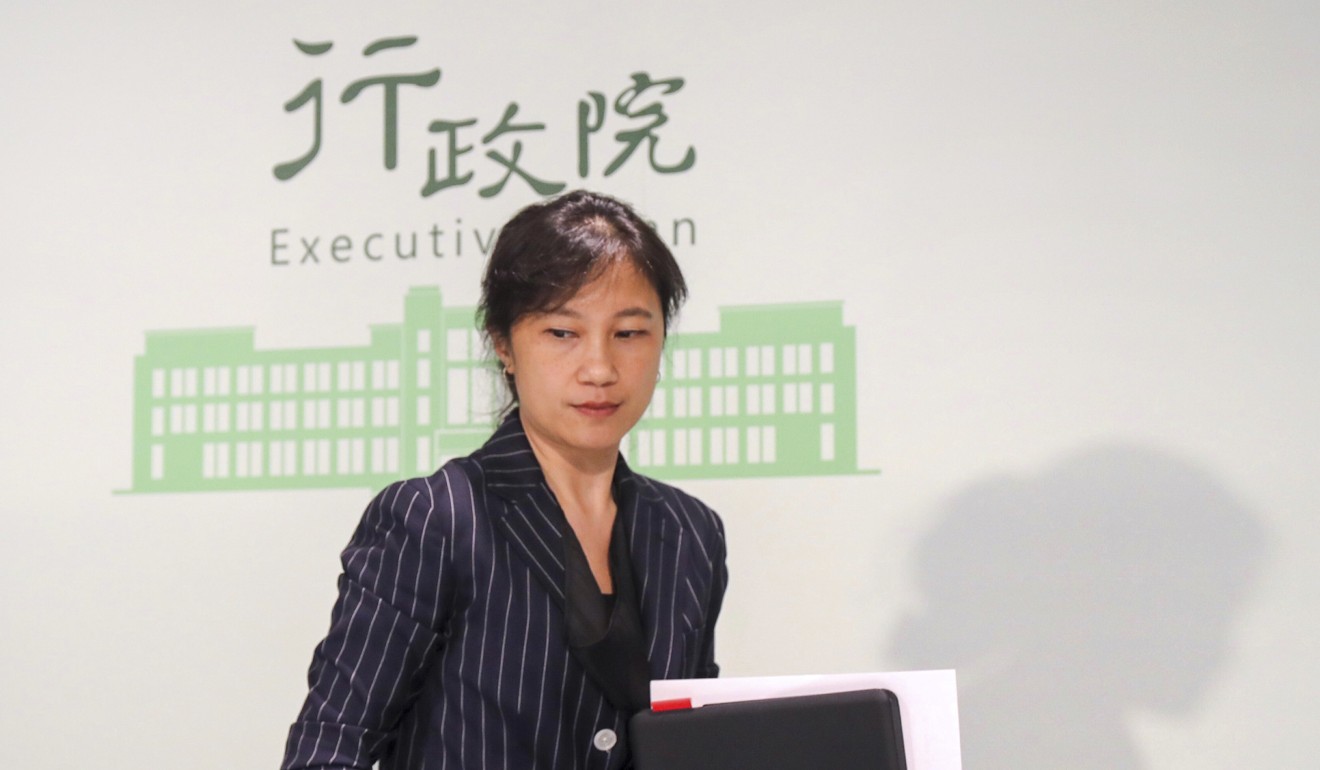
Taiwan says there is no plan for a total ban on Huawei products
- But government sector will continue to be blocked from using equipment from the mainland telecoms giant, according to cabinet spokeswoman
Taiwan on Tuesday said a ban on the government sector using equipment from mainland Chinese telecoms firms would continue, but rejected calls by lawmakers to entirely block the use of Huawei Technologies products on the island.
“There is no law for an overall ban on Huawei products in Taiwan and people here are free to buy or install any of Huawei’s products at their own risk,” cabinet spokeswoman Kolas Yotaka said.
But government departments cannot use any equipment provided by mainland telecoms firms, including Huawei and ZTE, she said.
Canada did not tell of Sabrina Meng’s arrest until asked, Beijing says
“The restriction on government departments installing such equipment has been in place for a long time because of security concerns, and it has nothing to do with the latest developments,” Kolas said, adding the authorities would have to take various factors into account in considering a broader ban on Huawei products and those of other mainland telecoms firms.
“We don’t have any plan at the moment to impose a [total] ban,” she said.

Government departments have been barred from using mainland telecoms equipment since 2013. But the arrest of Huawei chief financial officer Sabrina Meng Wanzhou in Canada on December 1 has fuelled security concerns in Taiwan, and legislators have called for a total ban on the company’s products.
Seeking bail, Huawei CFO Sabrina Meng Wanzhou offers to pay for her own guards
Wong Po-tsung, deputy chairman of the National Communications Commission, said the public should “rest assured about the security measures Taiwanese authorities have put in place against any possible mainland intrusion” into the island’s telecoms networks.
Taiwan introduced regulations in 2013 under which government agencies must work with the National Security Bureau, the island’s intelligence agency, when deciding on the use of certain equipment for next generation mobile networks.
Wong said the aim of the measure at the time was to block mainland companies, including Huawei and ZTE, from supplying products for 4G network infrastructure to avoid the potential risk of cyber espionage and hacking of Taiwanese government systems by the mainland.
Beijing considers Taiwan a renegade province that must eventually be reunified with the mainland, by force if necessary.
Lawmakers have also proposed that all 37 national and government-run banks in Taiwan be barred from using Huawei products – including mobile phones – and Tencent’s popular social network WeChat. Kolas told media the head of the island’s Financial Supervisory Commission, Wellington Koo, had said a thorough review of the issue was needed.
“That includes whether there is any law to back up what other countries are doing and whether it is in line with World Trade Organisation requirements,” she quoted Koo as saying.
It’s all the way with Huawei, as Sabrina Meng Wanzhou’s supporters converge on Canadian courtroom

